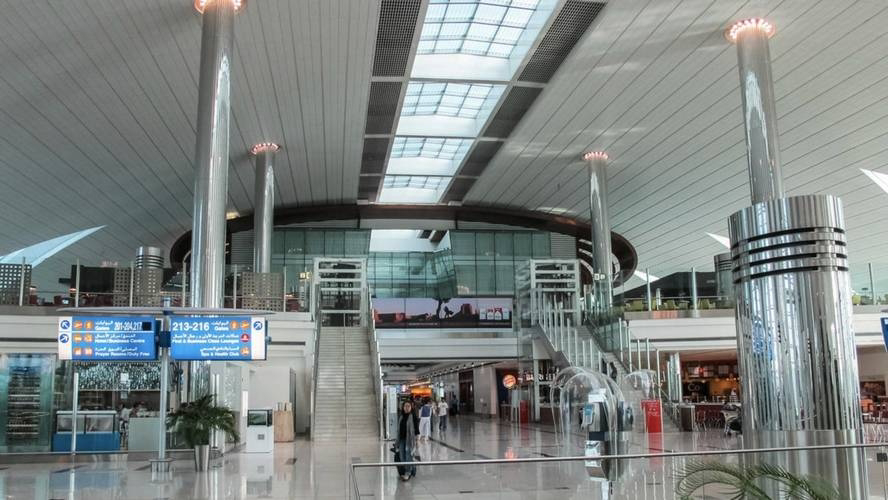
Status: Preliminary - official
Date: Friday 22 May 2020
Time: 14:40
Type: Airbus A320-214
Operator: Pakistan International Airlines - PIA
Registration: AP-BLD
C/n / msn: 2274
First flight: 2004-08-17 (15 years 9 months)
Total airframe hrs: 47124
Cycles: 25860
Engines: 2 CFMI CFM56-5B4/P
Crew: Fatalities: 8 / Occupants: 8
Passengers: Fatalities: 89 / Occupants: 91
Total: Fatalities: 97 / Occupants: 99
Ground casualties: Fatalities: 1
Aircraft damage: Destroyed
Aircraft fate: Written off (damaged beyond repair)
Location: 1,4 km (0.9 mls) E of Karachi-Jinnah International Airport (KHI) (Pakistan)
Phase: Approach (APR)
Nature: Domestic Scheduled Passenger
Departure airport: Lahore-Allama Iqbal International Airport (LHE/OPLA), Pakistan
Destination airport: Karachi-Jinnah International Airport (KHI/OPKC), Pakistan
Flightnumber: PK8303
Narrative: Pakistan International Airlines flight 8303, an Airbus A320, crashed on approach to Karachi-Jinnah International Airport (KHI), Pakistan. The airline stated there were 91 passengers on board and 8 crew members. Officials involved in the rescue operation reported that 97 bodies have been recovered and that two passengers have survived the accident.
The flight departed Lahore at 13:05 hours local time (08:05 UTC) and was expected to arrive at Karachi about 14:45 (09:45 UTC).
Departure from Lahore and cruising flight were uneventful. The flight crew did not follow standard callouts and did not observe CRM aspects during most parts of flight. According to the Pakistani Aviation Minister, the crew were engaged in conversations related to the coronavirus.
The controller at Karachi East Area Control cleared the flight for the Nawabshah 2A arrival procedure, and advised to expect an ILS approach for runway 25L. The flight was later cleared at pilot's discretion to report direct MAKLI, a waypoint 15 nautical miles at a radial of 075 from the Karachi VOR, and descend to FL100, and later re-cleared for FL50.
The aircraft changed over to the Karachi Approach controller and was cleared to descend down to 3000 ft, before reaching MAKLI.
The aircraft ended up higher than the required descend profile. At MAKLI the aircraft was at 9780 ft and at about 245 knots IAS. In order to manage the descent and lose the additional height, the OPEN DES mode was selected via the FCU, both autopilots were disengaged and speed brakes were extended.
Karachi Approach inquired "confirm track mile comfortable for descend" and later advised to take an orbit, so that the aircraft could capture the required descent profile. No orbit was executed and the effort to intercept the glide slope and ILS localizer was continued. At 7221 ft at around 10.5 NM from runway 25L the undercarriage was extended.
Karachi Approach advised repeatedly about the excessive height but the flight continued the approach.
At an altitude of 1740 feet and at a distance slightly less than 5 nautical miles from runway 25L the undercarriage as raised. At this time, the aircraft had intercepted the localizer as well as the glide slope. Flaps 1 were selected at 243 knots IAS. Over-speed and EGPWS warnings were then triggered.
Since the approach to land was continued, Karachi Approach instead of changing over the aircraft to the Tower controller, contacted Karachi Tower by phone to request landing clearance.
The Tower controller confirmed clearance to land without observing the abnormality that the landing gears were not extended. Karachi Approach then cleared the aircraft to land.
At 500 ft, the airspeed was 220 knots IAS at a slat/flap configuration 3, and a descent rate of 2000 ft/min. Several warnings and alerts sounded in the cockpit, such as overspeed, landing gear not down and ground proximity alerts. The landing was carried out with landing gears retracted. The aircraft touched the runway surface on its engines. The flight crew applied reverse engine power and initiated a braking action. Both engines scraped the runway at various locations causing damage to both of them.
The Tower controller observed the gear-up landing and contacted the Karachi Approach controller by phone. Subsequently Karachi Approach did not relay this to the flight crew.
The landing was discontinued and a go-around was executed.
At 14:35 the flight crew radioed that they were going around and requested another ILS approach to runway 25L. The controller instructed the flight to turn left heading 110 and climb to 3000 feet. Four minutes later the flight reported they had "lost engines" and subsequently declared a Mayday. The controller cleared the flight to land with both runways (25L and 25R) available.
Both engines failed one by one and subsequently the Ram Air Turbine (RAT) deployed to power the essential aircraft systems.
The aircraft was not able to reach the runway and crashed about 1340 meters short of runway 25L in a residential area named Model Colony. It was a slow speed impact with a high angle of attack. The aircraft broke up and a large post-impact fire erupted. A total of 12 houses and multiple cars suffered major damages due to the crash. One person on the ground died of her injuries on May 31.
Credit: Aviation Safety Network












